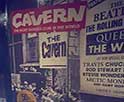Why Taylor Swift Didn't Own Her Masters and How She Gained Control
Taylor Swift Now Owns Her Music: What Happened?
Reading time: 1 minute, Discovery Chepe Id-737-FAR
Published on 06-04-2025

For many years, Taylor Swift was not the owner of her own music. That fact alone shocked millions of fans when it was revealed publicly in 2019. But behind that headline is a complex story about contracts, power struggles in the music industry, and a pop icon's determination to reclaim her voice.
Let's break it down in a clear timeline:
1- 2006 to 2017: Taylor Swift signs with Big Machine Records
At just 15 years old, Swift signed a contract with Big Machine Records, a Nashville-based label owned by Scott Borchetta. She released her first six albums under this label, including Fearless, Speak Now, and 1989.
2- The fine print: What did Taylor actually sign?
The original contract gave Big Machine Records ownership of the master recordings - the original versions of her songs. This is common in the music industry, especially for young or first-time artists. While Taylor wrote the songs, she did not own the recordings. That meant Big Machine could sell, license, or repackage them without her approval.

How Taylor Swift Reclaimed Her Discography: The Road to Ownership
3- June 2019: Scooter Braun purchases Big Machine
Music mogul Scooter Braun bought Big Machine for $300 million. With that deal, he acquired Taylor's master recordings - all six of her early albums. Swift claimed that she was not informed of the sale until it was public, and said she was never given a fair chance to buy back her catalog.
4- Taylor Swift responds publicly
Taylor wrote a powerful open letter expressing her heartbreak and frustration. She accused Braun of years of incessant, manipulative bullying and said the deal was her -worst-case scenario. The issue exploded online, and many artists sided with her.
5- November 2020: Taylor begins re-recording her albums
Her original contract allowed her to start re-recording her old songs after a certain time. Once that period expired, Swift got to work. She announced she would re-record all six albums to reclaim ownership and encourage fans to stream and buy her new versions instead.
6- April 2021: Fearless (Taylor's Version) is released
This was the first of the re-recorded albums, containing all the original tracks plus unreleased songs From the Vault. Fans immediately embraced the project, and it debuted at No. 1.
7- November 2021: Red (Taylor's Version) and the 10-minute phenomenon
This release included a new, extended 10-minute version of All Too Well, which became a viral hit. Swift also directed a short film for the song, further proving her creative control.
8- July 2023: Speak Now (Taylor's Version)
Taylor took full control of her 2010 release, adding emotional commentary and new songs. The album was praised for its maturity and depth.
9- October 2023: 1989 (Taylor's Version)
This marked the return of her massive pop breakout album. With crisp production and bonus tracks, Swift once again topped the charts.
10- 2024-2025: Completing the cycle
Taylor re-recorded her debut album Taylor Swift and her final Big Machine album Reputation. By 2025, she had fully regained artistic and legal control over all six albums.
Why does this matter?
Taylor Swift's fight wasn't just about her own songs. It exposed industry practices that often leave artists powerless over their creations. By choosing to re-record her albums, Taylor made a bold statement: Artists should own their work.
Through resilience, legal savvy, and creative brilliance, Taylor Swift transformed a personal betrayal into a cultural revolution. Today, she not only owns her music - she owns the narrative.
Sólo miren lo feliz que está Dios mío ?
— ???????????¹³ (@TayPinkHyeri_13) May 31, 2025
Te amamos Rubia preciosa, TODO por lo que tanto trabajaste es TUYO y solamente TUYO ??#TaylorSwift pic.twitter.com/majbq9vA9A
See Also
Discovery Chepe
Most read...















